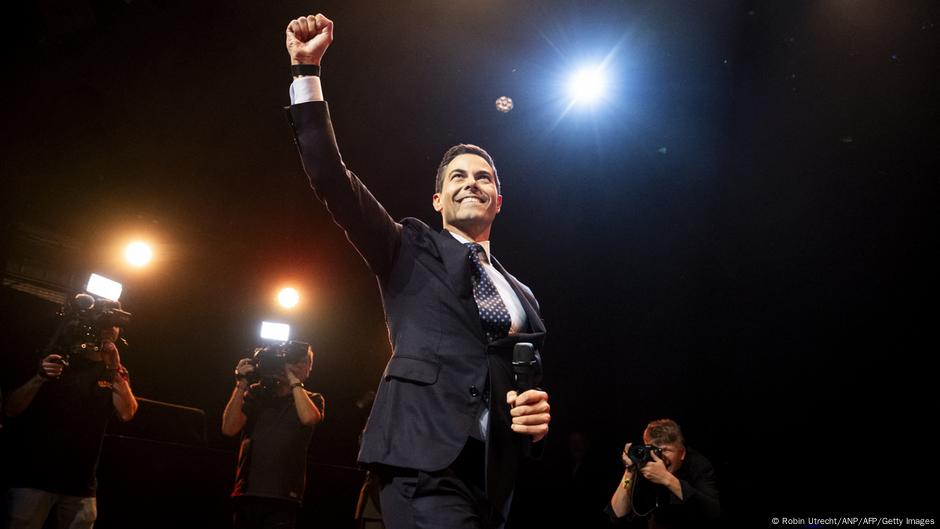
D66 party beats Wilders in tight election — ANP – DW – 10/31/2025
A nail-bitting election in the Netherlands is likely to culminate with supporters of nationalist Geert Wilders losing to the centrist D66 party, led by 38-year-old Rob Jetten.
Local news agency ANP said its tally showed that Wilders’ far-right Freedom Party (PVV) could no longer close the gap, despite D66 holding only a razor-thin majority of some 15,000 votes.
“I am incredibly happy that … we have become the biggest party in this election,” Jetten told reporters. “A historic result for the D66. At the same time, I feel a great responsibility.”
What does the Dutch election result mean?
Jetten is now on course to become the Netherlands’ youngest-ever prime minister, according to the figures from ANP, which compiles results from municipalities across the country.
The outcome marks a dramatic resurgence for D66, a pro-European, socially liberal party that campaigned on climate policy, affordable housing and restoring trust in institutions.
With about 18% of the vote, the party is projected to hold a clear plurality in the 150-seat Lower House but will need at least three partners to form a majority coalition.
Jettens is expected to take the lead in coalition negotiations, a process that typically takes months in the Netherlands’ fragmented political landscape.
How did the Dutch political parties fare?
D66 nearly tripled its seat count compared to the last election, buoyed by an energetic campaign and a surge in advertising spending. Meanwhile, Wilders’ PVV lost much of the momentum that had propelled it to a surprise victory in 2023, despite a late surge in the count that briefly suggested another upset.
“I think we’ve now shown to the rest of Europe and the world that it is possible to beat the populist movements if you campaign with a positive message for your country,” Jetten said.
All major centrist and left-wing parties had ruled out entering a coalition with Wilders, citing his hardline anti-immigration stance and previous calls to ban the Quran. Wilders said he would still demand the first opportunity to form a coalition if his party had won the most votes.
Final confirmation of the result is expected Monday, once mail ballots from Dutch citizens living abroad are counted.
Why was the Netherlands voting now?
Wilders triggered the election by withdrawing the PVV from a fragile four-party government after a dispute over immigration quotas and family reunification rules, a move that fractured the coalition and forced an early vote.
His performance in the European Union’s fifth-largest economy will be watched as a gauge of how far-right parties are reshaping European politics, with nationalist movements also topping polls in France, Germany, and Britain.
Edited by Sean Sinico
First Appeared on
Source link






